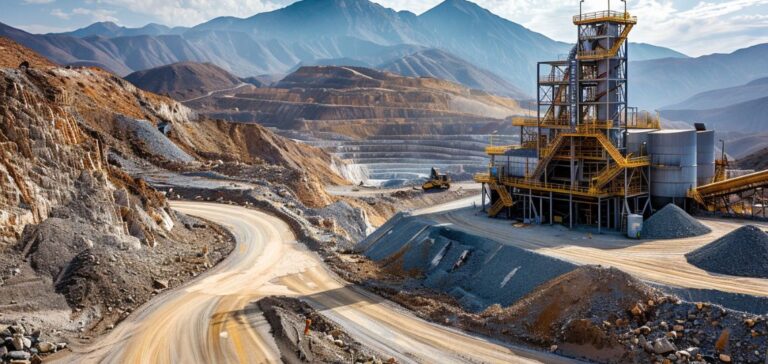Critical minerals play a central role in technological and industrial sectors, but their supply relies on a limited number of actors. Lithium, nickel, cobalt, and graphite, essential for battery manufacturing, have experienced significant price fluctuations. After a sharp rise between 2021 and 2022, lithium prices have dropped by 80% since 2023, while nickel, cobalt, and graphite prices have halved.
Consistent demand amid a concentrated supply
Despite these variations, demand continues to grow. According to the International Energy Agency (IEA), lithium demand has increased by 25% annually since 2021, while demand for nickel, cobalt, and graphite has risen by 7–10% per year. Production has struggled to keep pace, despite capacity expansions in Africa, Indonesia, and China. By 2035, supply tensions could intensify, particularly for lithium and copper, with projected demand 50% higher than announced capacity.
Market concentration amplifies vulnerabilities
Global supply remains dominated by a limited number of actors. More than 75% of lithium, nickel, and cobalt refining capacities are concentrated in three countries, while over 90% of graphite production depends on a single country. This dependency exposes the market to major disruptions in case of restrictions or geopolitical shocks. An IEA simulation shows that excluding the world’s top producer would leave remaining supply covering only 25–30% of cobalt and graphite demand in 2035.
Trade restrictions increase uncertainty
Since late 2024, several export control measures have been implemented. China has restricted exports of gallium, germanium, and antimony to the United States. In February 2025, these restrictions expanded to graphite, tungsten, and molybdenum, further pressuring supply chains. Such measures have previously triggered sharp price increases, as seen in 2010 when rare earth prices surged tenfold.
A direct impact on industrial costs
Supply disruptions could lead to significant increases in production costs. A sudden spike in graphite prices would raise battery costs by 1.5 times, making electric vehicles less competitive. In 2024, battery costs were already 30% higher in the United States and 50% higher in Europe than in China. With rising raw material costs, this gap could reach 70%, jeopardizing industrial relocation efforts in the West.
Consequences for manufacturing competitiveness
A shock to critical mineral prices would widen production cost gaps between regions. Currently, battery cell manufacturing is already 40–50% more expensive in Europe and the United States than in China. A surge in graphite prices would push this gap to 70%, significantly reducing the economic viability of industrial projects outside Asia. For investors and industry players, diversifying supply sources is becoming a priority.






















